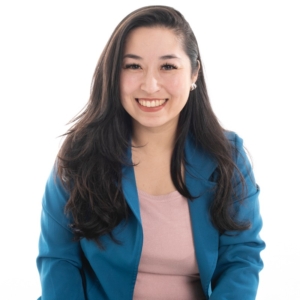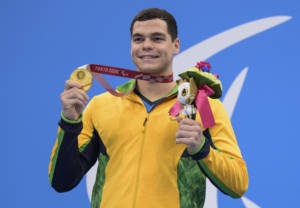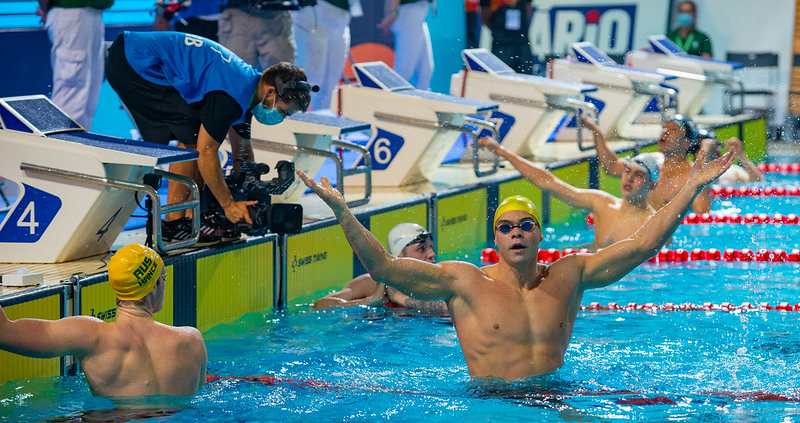Securing sponsorship for athletes with intellectual impairment
Increasing awareness and support towards the Paralympic movement over the past decade has attracted many companies to sponsor athletes with disabilities. Many athletes with physical or visual impairments signed successful sponsorship deals after their Paralympic Games success like Brazilian S5 swimmer Daniel Dias with Panasonic Brazil, British S6 swimmer Ellie Simmonds with Adidas, BMW, Norwegian Breakaway cruise ship, Speedo and Cadbury, Dutch double-amputee sprinter Marlou van Rhijn with Nike, American snowboarder Amy Purdy with Coca-Cola, Toyota and Kelloggs. However, athletes with intellectual impairments are having a difficult time getting picked by sponsors even after their incredible performance in Virtus or Paralympics sport.
To understand the root cause of this trend and support member organisations/athletes to secure sponsorship deals, Virtus invited Monica Valentin from Brazil as the guest speaker for the webinar on ‘Sponsorship for athletes with intellectual impairments‘. Monica Valentin is the former athlete manager of Virtus Ambassador and Paralympic Champion, Gabriel Bandeira, from Brazil. Driven by her passion for Paralympic sports, Monica has worked at the Brazilian Paralympic Committee for five years, Rio 2016 Paralympic Games, World Championships, Para-Pan American Games, and many other international competitions.
The presentation included an analysis of the sports market, marketing strategies for athletes through digital marketing along with some tips on how to secure sponsorship deals for athletes with intellectual impairment. The webinar was followed by a short discussion session with the Marketing and Communication officer of Virtus, Mousumi Mazumdar where Monica gave insight to the marketing industry and their approach/perception towards athletes with intellectual impairments.

Monica Valentin
After working for more than a decade in the Paralympic sports industry, Monica realized that there are very few people specialized in the marketing industry to guide the athletes in marketing, communications, PR and social media, and decided to open her own marketing agency called Mônica Valentin Commerce and became an athlete agent. Monica has developed marketing-communication strategies and managed the athletes’ brand for many sensational Paralympic superstars from Brazil like Gabriel Bandeira (swimming), Daniel Dias (swimming), Adria Santos (athletics), Susana Schnarndorf (swimming), Luiza Fiorese (sitting volleyball), Raíssa Machado (Athletics), Ruiter Silva (Triathlon) and Vinícius Rodrigues (athletics). She also managed their press operations, PR and commercial representation.
Although Monica had extensive experience in managing many para-athletes with physical and visual impairments, Bandeira was the first athlete with intellectual impairment she started working for in 2020 and confessed the difficulties she faced, partially because of Gabriel’s impairment but mostly due to the lack of industrial support or understanding of intellectual impairment.

Gold Medallist Gabriel Bandeira BRA posing with his Gold medal in S14 Men’s 100m Butterfly at Tokyo 2020. Photo Credit: OIS/Joel Marklund.
“Gabriel has an intellectual impairment which is ‘invisible’ in nature. While trying to sell his profile to sponsors, I realized many marketing directors and teams are not as creative as they should be because they couldn’t see a way out on how to promote this impairment without actually saying it. They had this big question mark on their face like we don’t know what to do, how can we promote a para-athlete whose impairment is invisible?” Monica Valentin told Virtus.
“People working in the marketing industry need to know that it is not the impairment which is defining the athlete or making them special, it is their hard work and their success which makes these athletes special. We can use athletes’ stories without the visual thing, without the need to use images which highlight their impairment.”
Monica further disclosed how Paralympic Games is still not always recognised by brand representatives who see sponsoring athletes with disabilities to be like doing ‘charity’ which makes it difficult for para-athletes in Brazil to secure sponsors.
As a majority of the Virtus member nations work voluntarily, hiring specialised marketing or PR teams who have the industrial experience to find endorsements for athletes can be tricky. We hope member nations and athletes can benefit from this webinar.
A full recording of the webinar is available on the Virtus Academy website.




 Geoffroy Wahlen | FFSA
Geoffroy Wahlen | FFSA